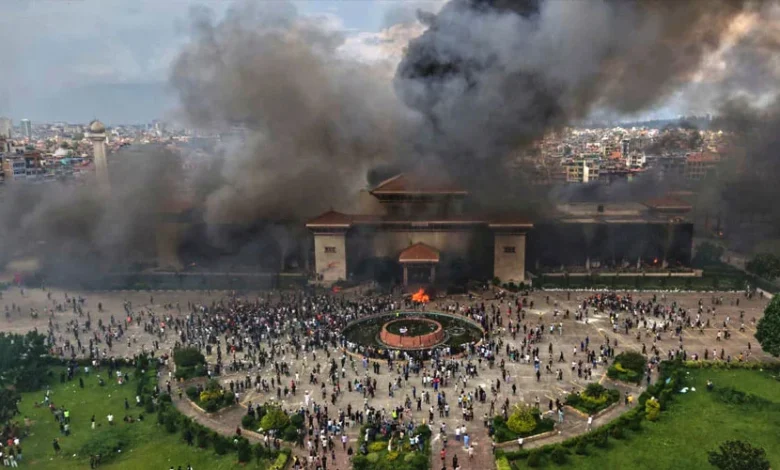Elections are set for March 2026 after the dissolution of the Nepali parliament.

The president of Nepal, Ram Chandra Paudel, swore in former chief justice Sushila Karki as interim prime minister barely hours before dissolving parliament late Friday and calling for new elections on March 5, 2026.
Following violent anti-corruption demonstrations that claimed over 50 lives and compelled Prime Minister KP Sharma Oli to step down, the decision was made.
The House of Representatives was dissolved and a new election date was set on the new prime minister’s advice.
“March 5, 2026 is the date of the election,” stated Kiran Pokharel, the president’s publicity advisor. The announcement came after days of turmoil that sent the 30 million-person Himalayan nation into its greatest crisis in decades.
Interim Prime Minister Sushila Karki is sworn in.
At a brief ceremony held in the presidential palace in Kathmandu, Sushila Karki, 73, became the country’s first female chief judge. At the swearing-in, which was attended by diplomats and former leaders, President Paudel congratulated her and said, “We wish you success, wish the country success.”
Picture
Karki declared, “I… take an oath in the name of the nation and the people to fulfill my duty as the prime minister.” She will oversee the six-month election transition.
Oli is forced to leave after deadly protests.
Anger over corruption and a contentious social media ban that was later lifted were the main causes of the uprising. The worst violence since the 2006 civil war broke out when protesters, mostly from Nepal’s younger population, battled with police forces.
During the protests, at least 51 individuals lost their lives and another 1,300 were injured. An temporary government was established after Parliament was set on fire prior to Oli’s resignation on Tuesday.
The military enforced curfews and retook control of the streets midweek, though police presence remained heavy in major cities.
India welcomed the leadership change and upcoming polls. “Heartfelt congratulations to the Honorable Sushila Karki Ji on assuming the office of Prime Minister of Nepal’s interim government,” Indian Prime Minister Narendra Modi posted on X. “India is totally dedicated to Nepal’s brothers and sisters’ peace, development, and prosperity.”
Since the end of its monarchy in 2008, Nepal has struggled with political and economic turmoil. Job shortages at home have pushed millions of Nepalis to seek work abroad, mainly in the Middle East, South Korea and Malaysia.
By Friday, signs of normalcy returned to Kathmandu as shops reopened and traffic resumed, with police replacing rifles with batons.